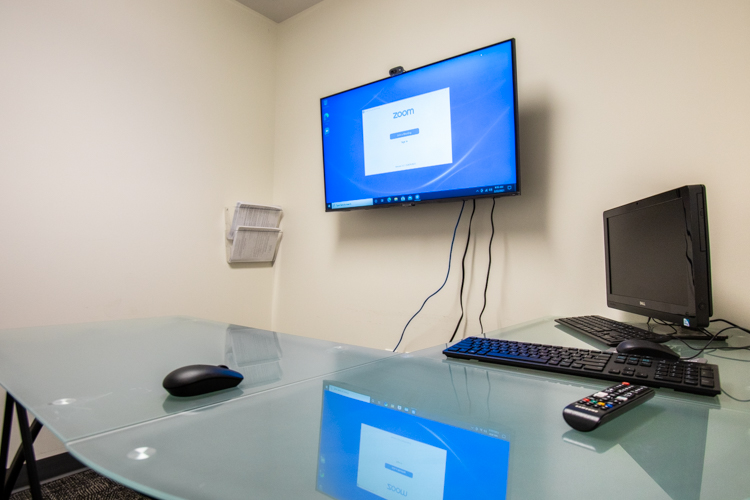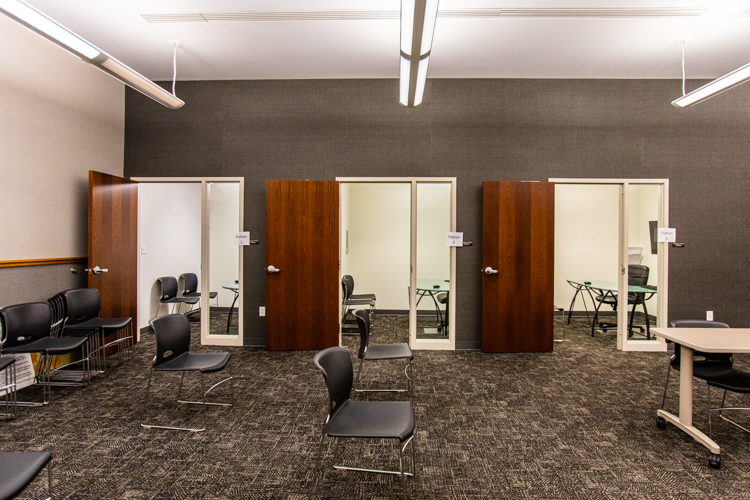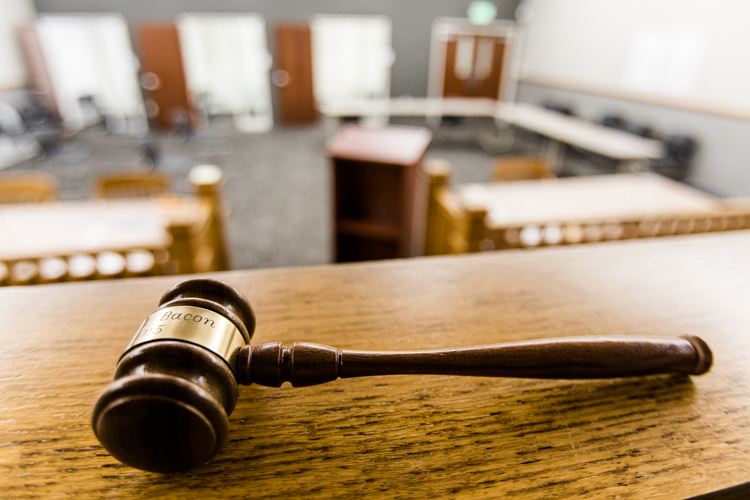Innovations in Lawrence Township Small Claims Court
By Bob Rath, Chief Innovation Officer | Innovation Initiative
Judge Kimberly Bacon has served on the bench in Lawrence Township Small Claims Court in Marion County since 2015. She is a member of several judicial branch committees, including the Innovation Initiative’s Technology Working Group, which is charged with evaluating business processes and innovative technologies that can enhance the delivery of court services.

Virtual courtroom
The Technology Working Group envisioned enabling remote appearance by video during the first meeting on November 4, 2019. Judge Bacon offered to pilot a virtual courtroom—quite a novel concept in the pre-pandemic era.
Lawrence Township has several meeting rooms, stemming off of the courtroom, where opposing parties can discuss a settlement of their dispute. To accommodate one of the parties appearing by video, these meeting rooms were equipped with videoconference equipment, allowing a party on site to meet with an off-site party. This ensures that the parties can still confer and perhaps settle their case, even if one party is remote.
Even though the pandemic caused all the court’s hearings to be virtual, participants sometimes arrive for their hearing in person, either unaware that the courtroom is closed to maintain social distancing or because they are unable to connect by video from home. Many in the community do not have access to reliable broadband and may have limited minutes to use on their phone. However, the participants can attend the hearing by video from the court’s own meeting room, with socially-distanced help from court staff.

Small claims legal clinic
Once installed, the videoconference technology may be used in a variety of ways. Judge Bacon offered the use of the videoconference rooms for attorneys to connect from anywhere in Indiana with on-site clients who have a case pending in Lawrence Township and who qualify for civil legal aid. Pro Bono Indiana, through the Heartland Pro Bono Council, delivered a virtual pro bono legal clinic in February using the court’s existing videoconference resources.
Over time, more attorneys may be available to offer legal services pro bono if they can do so by video, eliminating the time to travel to and from a clinic’s physical location.
Wayfinding and check-in
The Lawrence Township Small Claims Court’s caseload—over 5,000 new cases in 2019—is made up primarily of landlord/tenant disputes and debt collections. Some court hearings may have dozens of cases on the docket—sometimes, over 100 in a single session. Checking everybody in at the start of each session is time consuming. But there is an initiative underway to improve the process—it’s called Wayfinder. It uses modern technology and widely accepted check-in practices people are already familiar with in daily life.
Many of the participants coming to court have a mobile phone. Considerable time could be saved by allowing them to check in by sending a text message to the court’s system. An automated service can record their presence and track all participants who have appeared, whether they checked in by text message or by speaking with court staff.
Sessions with many cases scheduled may take several hours for all cases to be heard. Participants are often unsure when their case will be called. To alleviate this problem, wayfinding monitors in the township offices will display the queue of cases on the docket, so that participants can have an idea as to whether their case is soon to be called.
Participants who have registered a mobile phone number with the Court can even exit the courtroom or go offline and be invited back by text message when it is nearly their turn. Time may pass more quickly if participants can be doing something else—anything else—rather than sitting in the courtroom the entire time.
One “silver lining” from the year 2020 is that many of us have become more comfortable with technology. With the pilot projects in Lawrence Township Small Claims Court, all participants will have better accessibility and visibility to the court’s docket through wayfinding video displays and the ability to check in by text message. Videoconferencing has been essential to connecting litigants, attorneys, and the court. And the quest for more improvements never ends.
